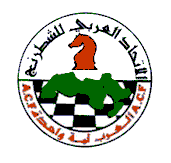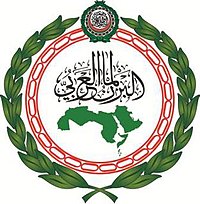Abdul Nasser is a male Muslim given name, and in modern usage, surname. It is built from the Arabic words Abd, al- and Nasser. The name means "servant of the Helper", An-Nasser being a Muslim theophoric name.
Abd al-Aziz, frequently also transliterated Abdul-Aziz, is a male Arabic Muslim given name and, in modern usage, surname. It is built from the words ʽAbd, the Arabic definite article and ʽAzīz "Almighty". The name is commonly abbreviated as "ʽAzīz". The name means "servant of the Almighty", al-ʽAzīz being one of the names of God in Islam, which give rise to the Muslim theophoric names.
This is an alphabetical list of topics related to Islam, the history of Islam, Islamic culture, and the present-day Muslim world, intended to provide inspiration for the creation of new articles and categories. This list is not complete; please add to it as needed. This list may contain multiple transliterations of the same word: please do not delete the multiple alternative spellings—instead, please make redirects to the appropriate pre-existing Wikipedia article if one is present.

The Arab Scout Region also known as the Arab Scout Organization is the regional support centre of the World Scout Bureau of the World Organization of the Scout Movement, headquartered in Cairo, Egypt. By 1954, Scouting had become so popular in Arab countries that WOSM established the Arab Scout Region in Damascus.

The Arab Chess Federation (ACF) is a non-profit organization that promotes chess within the Arab world. Though unaffiliated with the Arab League, it includes 22 of the latter's member states.

The Arab League or League of Arab States was founded by Egypt in 1945, has 22 members and seven observer members so far: Armenia, Brazil, Chad, Eritrea, Greece, Republic of India, Venezuela.

The 1964 Arab League summit was the first summit of the Arab League, held in Cairo, Egypt, on 13–16 January 1964 and attended by all fourteen of the then member states: United Arab Republic (Egypt), Iraq, Lebanon, State of Palestine, Syria, Saudi Arabia, Jordan, Yemen Arab Republic, Libya, Sudan, Morocco, Tunisia, Kuwait and Algeria.

The 1964 Arab League summit in Alexandria was held on 11 September 1964 in Montaza Palace, Alexandria as the second Arab League Summit. The focus of the conference was to implement the plans discussed at the first Arab League summit held in January of that year. The summit was notable for being a key step in the buildup to the Six-Day War in 1967 and separately for "approving the establishment of the Palestine Liberation Organization."
The men's association football tournament at the 2011 Arab Games was held in Doha, Qatar from 10 to 23 December. The tournament was played at three venues in two host cities. Egypt were the defending champions from the 2007 Arab Games in Cairo. Bahrain clinched the Gold Medal after beating Jordan 1–0.
The International Prize for Arabic Fiction Nadwa is an annual writers' workshop for young writers from the Arab world. Held under the aegis of the International Prize for Arabic Fiction, the nadwa is the first such workshop for Arab writers and has been an annual event since 2009.
The 2017 Arab League Summit was held near the Dead Sea in Jordan on 29 March 2017.

The 2018–19 Arab Club Champions Cup, officially named the 2018–19 Zayed Champions Cup to mark 100 years since the birth of the late Sheikh Zayed bin Sultan Al Nahyan, was the 28th season of the Arab Club Champions Cup, the Arab world's club football tournament organised by UAFA, and the first season since it was renamed from the Arab Club Championship to the Arab Club Champions Cup.
The 2019–20 Arab Club Champions Cup knockout stage began on 20 August 2019 and ended on 21 August 2021 with the final at the Prince Moulay Abdellah Stadium in Rabat, Morocco, to decide the champions of the 2019–20 Arab Club Champions Cup. A total of 32 teams competed in the knockout stage.
The 2021 Arab Women's Cup was the second edition of the Arab Women's Cup for national women's football teams affiliated with the Union of Arab Football Associations (UAFA). The tournament was hosted by Egypt between 24 August and 6 September 2021.
The Federation of Arab News Agencies (FANA), a branch of the Arab League, is a membership organization for Arabic-language, national news agencies, currently of 18 or 19 members and established in 1975 in Beirut, Lebanon.
Gamal Abdel Nasser, the 2nd president of Egypt, died on 28 September 1970, at age 52. Abdel Nasser, one of the most respected and revered Arab leaders, died suddenly after bidding farewell to the Emir of Kuwait at the airport, as soon as the work of the emergency Arab summit ended. Vice president Anwar Sadat gave a speech to the nation announcing the death of Nasser. After the news of his death came out, Egyptian television and radio hastily began reciting the verses of the Qur'an. Nasser had never recovered from the second stroke in four years.
The 2022 Arab League summit, officially the 31st Ordinary Session of the Council of the League of Arab States at the Summit Level, was held at its 31st session in Algiers. This was the fourth time the city hosted this event. All Arab countries were represented at the event, with the exception of Syria, which has been suspended since 2011 due to the ongoing crisis. The summit was postponed several times before its date was confirmed on 1 November 2022. It was initially to be held in 2020, 2021 and finally March 2022. But due to the COVID-19 pandemic, it was postponed to November to coincide with the anniversary of the outbreak of the Algerian Revolution. The summit was also the first since a number of countries normalized relations with Israel, causing a schism in the Arab position, which had remained united over what was stipulated in the Beirut 2002 initiative.
The 2005 Arab League summit, officially 17th Ordinary Session of the Council of the League of Arab States at the Summit Level, was a regular summit that was held in Algiers, Algeria in March 2005.
The 2023 Arab Futsal Cup hosted by the Saudi governorate of Jeddah was the seventh edition of the Arab Futsal Cup between 6 and 16 June 2023. For the first time, twelve teams took part: Saudi Arabia, Morocco, Iraq, Kuwait, Egypt, Tajikistan, Palestine, Algeria, Comoros, Lebanon, Libya, and Mauritania.









